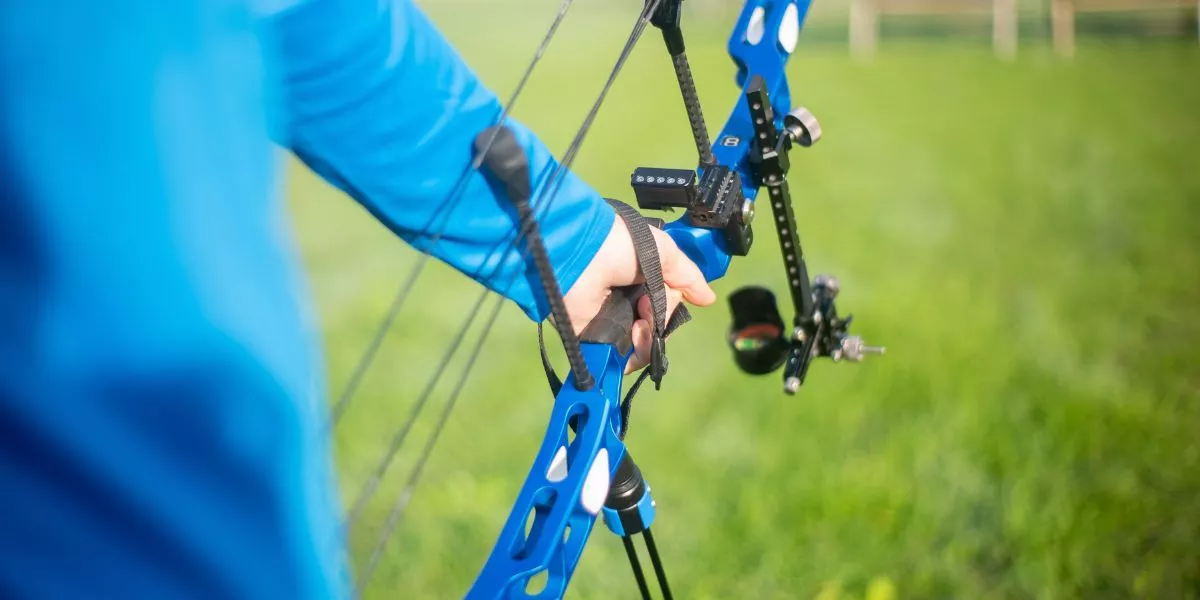
To choose the right bow for your hunting needs, you need to first understand the different types available. Compound bows offer accuracy and power, recurve bows are lightweight and easy to maintain, and longbows provide a classic feel. Consider your hunting style – compound bows for long-range shots, recurve bows for close encounters, and longbows for simplicity. Assess your skill level; beginners may prefer compound bows, while advanced hunters may enjoy traditional bows. Factor in features like adjustable draw weight and accessories that enhance accuracy. Seeking expert advice and testing bows hands-on will help you make an informed decision about the best fit for you.
Understanding Different Types of Bows
When choosing a bow for hunting, understanding the different types available helps you make an informed decision tailored to your needs. One popular type is the compound bow, known for its high accuracy and power due to its pulley system. Compound bows are great for long-distance shots and hunting larger game.
On the other hand, recurve bows are simpler in design, making them lightweight and easy to maintain. Recurves are favored by many traditional hunters for their elegance and versatility in various hunting environments.
If you prefer a more primitive approach, a longbow might be the right choice for you. Longbows offer a classic feel and are excellent for hunting in tight spaces where maneuverability is key.
Consider Your Hunting Style
To determine the most suitable bow for your hunting endeavors, it's imperative to consider your hunting style. Whether you prefer stalking your prey through dense forests or patiently waiting in a tree stand, your hunting style plays a crucial role in choosing the right bow.
If you enjoy long-range shots and open fields, a compound bow with its accuracy and speed might be your best bet. On the other hand, if you like getting up close and personal in tight spaces, a recurve bow's maneuverability could be more suitable.
For those who value simplicity and a more traditional approach, a longbow might align better with your hunting style. Its smooth shooting and classic design can enhance your hunting experience.
Crossbows, with their ease of use and ability to hold at full draw, are great for hunters who want a quick and powerful shot without the need for extensive practice. Understanding how you prefer to hunt will lead you to the bow that complements your style, providing you with the best chance for success in the wild.
Assess Your Skill Level
Assessing your skill level is crucial in selecting the right bow for hunting. To determine which bow suits you best, honestly evaluate your proficiency. If you're a beginner, opt for a compound bow as it tends to be more forgiving and easier to shoot accurately. For intermediate archers, a recurve bow offers a balance of challenge and precision. Advanced hunters might lean towards traditional bows for the ultimate test of skill.
Remember, choosing a bow that matches your abilities can enhance your hunting experience by allowing you to focus on improving your technique rather than struggling with equipment beyond your current proficiency level.
Being self-aware about your skill level ensures a smoother transition into hunting with a bow. It helps you avoid frustration and promotes a positive learning curve. Remember, there's no shame in starting with a beginner-friendly bow; everyone has to begin somewhere. As you progress and hone your skills, you can always upgrade to more challenging equipment that aligns with your newfound expertise.
Factor in Bow Features and Accessories
Consider exploring the various features and accessories available for bows to enhance your hunting experience. When selecting a bow, look for features that match your hunting style. Are you into speed and power? Then a compound bow with a high let-off and adjustable draw weight might be your best bet. Seeking something more traditional? A recurve bow could be your weapon of choice. Don't forget about accessories like sights, stabilizers, and arrow rests. These tools can fine-tune your shot and improve accuracy.
Opting for a bow with customizable options allows you the freedom to adjust settings to suit your preferences. Adjustable draw lengths, weights, and grip styles enable you to personalize your shooting experience. Consider the terrain you'll be hunting in and choose accessories like camouflage patterns or noise-dampening devices to stay stealthy. Prioritize features that align with your hunting needs and preferences, as they can make a significant difference in your overall performance and enjoyment.
Seek Expert Advice and Test Bows
When seeking the right bow for hunting, consulting with experts and testing out different options can provide valuable insights into finding the best fit for your needs. Expert advice can help you navigate the vast array of bows available, ensuring you make an informed decision. These professionals can assess your skill level, hunting style, and physical capabilities to recommend the most suitable bow for you.
Testing bows is crucial as it allows you to feel the bow's draw weight, length, and overall comfort. By trying out various models, you can determine which one feels natural in your hands and suits your shooting technique. Pay attention to how each bow performs in terms of accuracy, noise level, and vibration upon release. Only through testing can you truly experience how a bow handles and decide if it aligns with your hunting requirements.
Conclusion
When choosing the right bow for your hunting needs, it's important to understand the different types available. Consider your hunting style and assess your skill level. Factor in bow features and accessories, seek expert advice, and test out different bows before making a decision.
By taking these steps, you can ensure you find the perfect bow that fits your needs and enhances your hunting experience.




